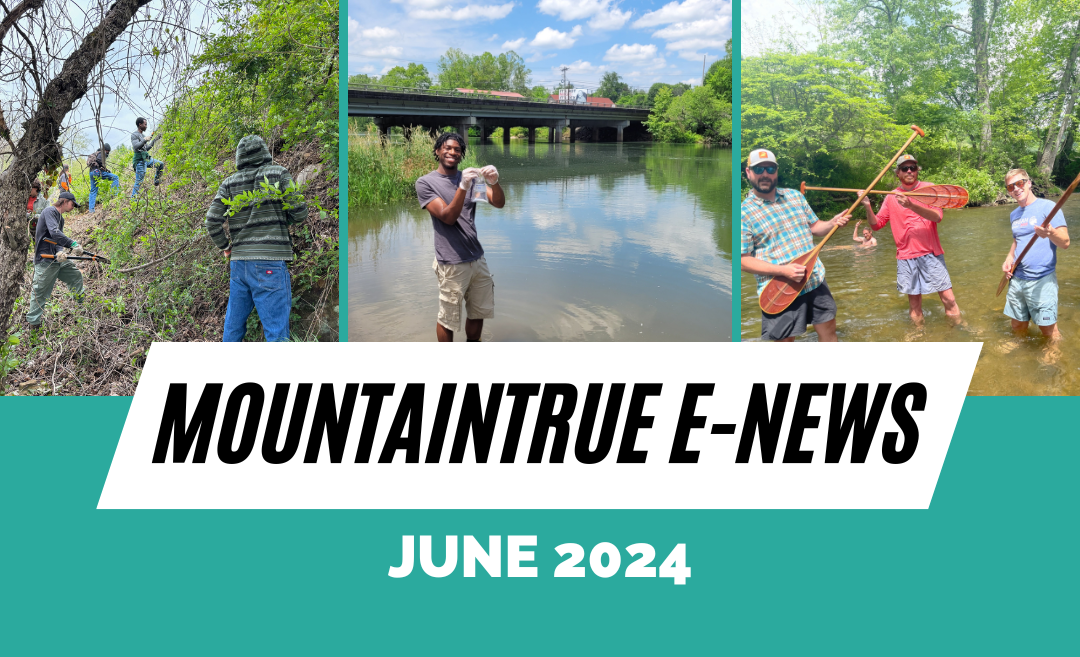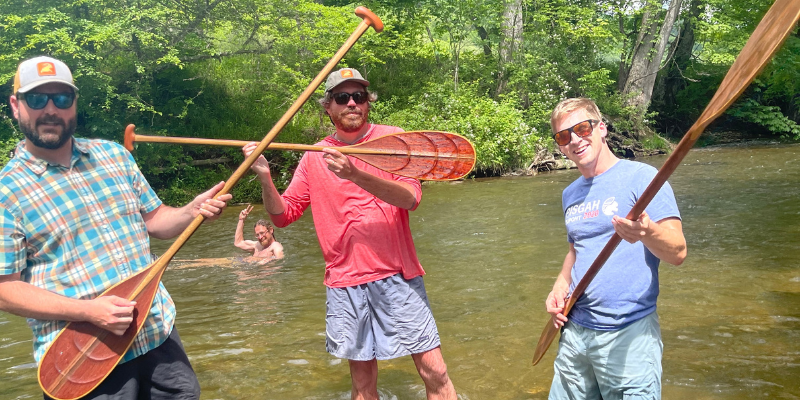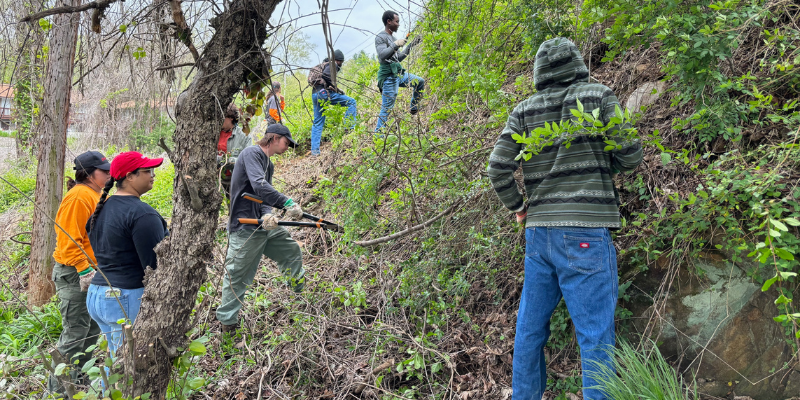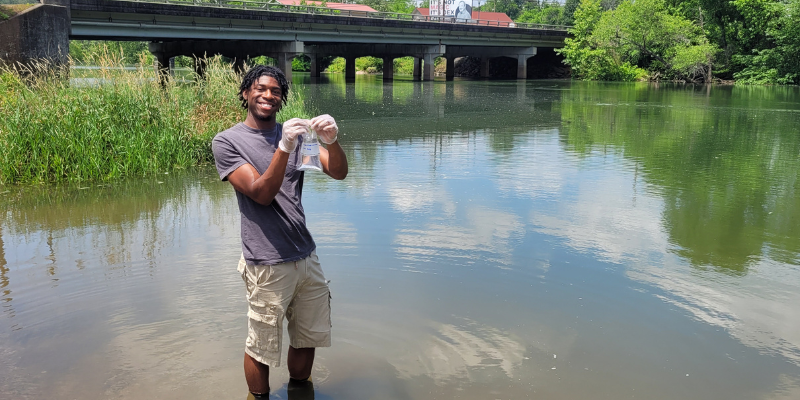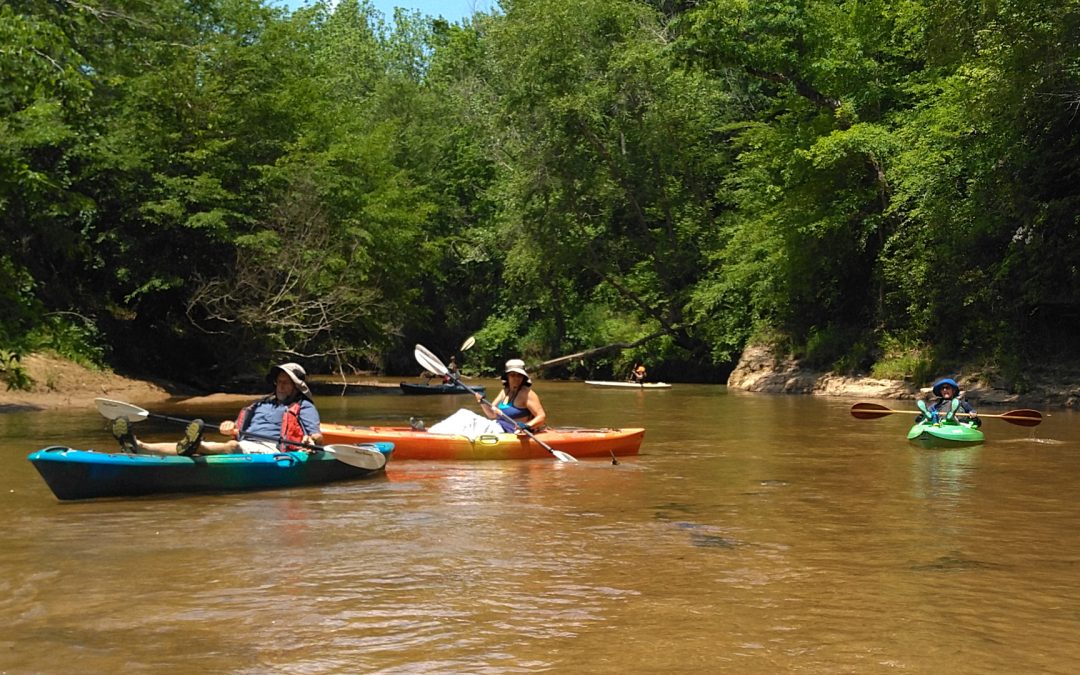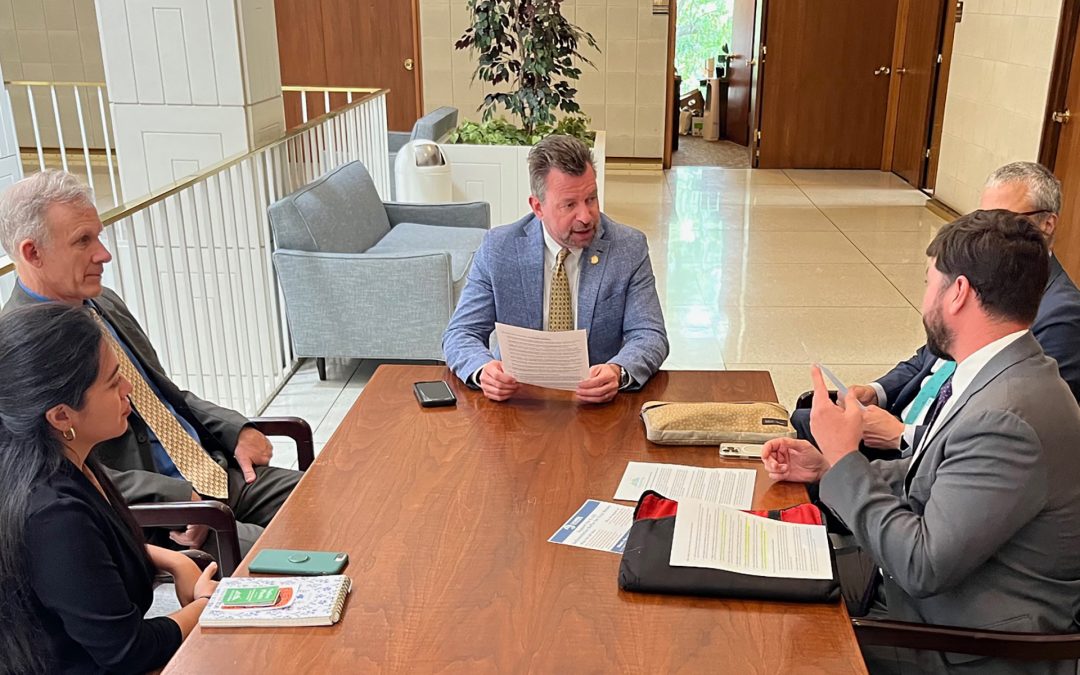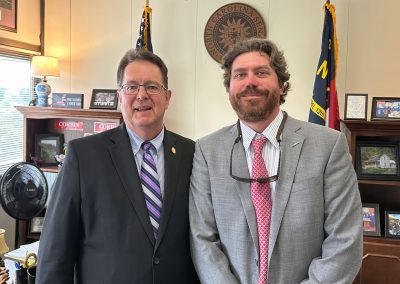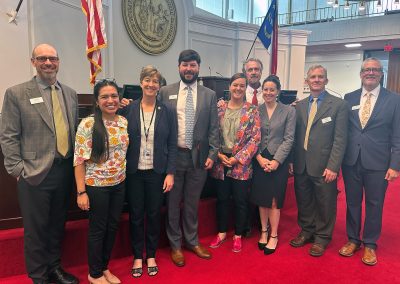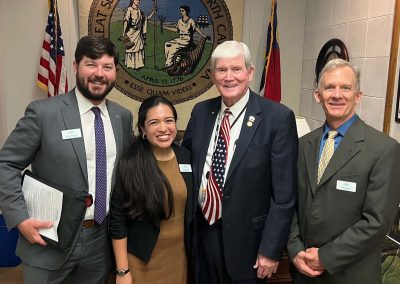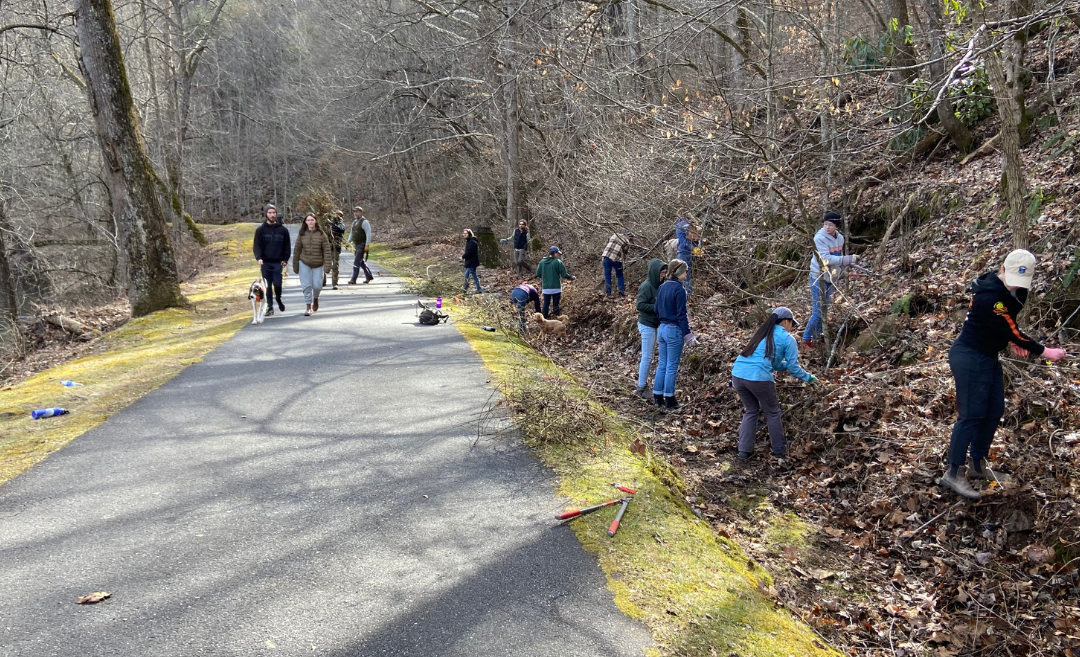
Battling Invasive Plants in Jackson County: A Community Effort
Battling Invasive Plants in Jackson County: A Community Effort
Photo: Volunteers work to clear NNIPs along the Jackson County Greenway in Cullowhee, NC.
MountainTrue’s Western Regional Office is heading up an ambitious initiative to tackle the pervasive issue of nonnative invasive plants (NNIPs) in Jackson County, NC. Resilient and prolific, NNIPs are wreaking havoc on local ecosystems, outcompeting native flora, and altering the region’s natural beauty. Here’s a closer look at the community-driven efforts to combat this environmental challenge.
Community Efforts and Volunteer Impact
The Jackson County Greenway has become a focal point for removal efforts, with coordinated workdays led by MountainTrue’s AmeriCorps Western Region Water Quality and Habitat Restoration Associates, Darby Stipe (2022-2023 term) and Eve Davis (2023-2024 term).
From January to April 2023, 33 volunteers contributed 99 hours. This number grew significantly in the following months, with 63 volunteers donating 189 hours from November 2023 to April 2024.
Overall, 96 unique volunteers have contributed 288 hours across nine workdays. This collaboration includes partners like Mainspring Conservation Trust, Jackson County Parks & Rec, WCU EcoCats Club, and others.
Understanding the Invaders
NNIPs exhibit several problematic characteristics that make them particularly troublesome:
- Opportunistic: They thrive in disturbed ecosystems, quickly taking root and spreading.
- Prolific: High reproduction rates enable rapid colonization.
- Resilient: Many can resprout after attempts at removal.
- Competitive: They overshadow native plants, reducing biodiversity.
- Unchecked: Lacking natural predators, these plants grow uncontested.
Some of the most common invasive plants in Jackson County include:
- Vines: Oriental (Asiatic) Bittersweet, Japanese Honeysuckle, English Ivy
- Shrubs: Chinese Privet, Burning Bush, Autumn Olive, Multiflora Rose
The Threat Posed by Specific Invaders
Oriental (Asiatic) Bittersweet
- Habit: Coils around trees, girdling them and cutting off light to understory plants.
- Threat: Prolific seed production leads to widespread distribution.
Japanese Honeysuckle
- Habit: Forms dense ground cover and climbs trees and shrubs.
- Threat: Outcompetes native plants for sunlight.
English Ivy
- Habit: Invades ground and tree canopies.
- Threat: Prevents photosynthesis and adds weight to tree limbs.
Chinese Privet
- Habit: Forms tall, impenetrable thickets.
- Threat: Dominates landscapes if allowed to seed.
Burning Bush
- Habit: Dense stands spread by birds.
- Threat: Outcompetes native vegetation.
Autumn Olive
- Habit: Rapid growth, drought and flood tolerant.
- Threat: Crowds out native plants.
Multiflora Rose
- Habit: Thorny thickets spread by animals.
- Threat: Produces up to 2 million seeds annually.
Effective Removal Strategies
Successful removal involves localized herbicide application, avoiding broad spraying. Techniques include:
- Root Pulling or Cut Stump Treatment: Cutting the plant below the first node and applying Triclopyr to prevent resprouting.
Looking Forward
The fight against NNIPs is ongoing. Upcoming events include several workdays planned at Pinnacle Park and other locations. Community engagement remains crucial, and the collective effort will ensure the preservation of Jackson County’s natural beauty.
If you’re interested in joining the battle against invasive plants or want to learn more about these efforts, stay tuned for upcoming workday announcements and volunteer opportunities on our events page. Together, we can protect and restore our local ecosystems for future generations.

